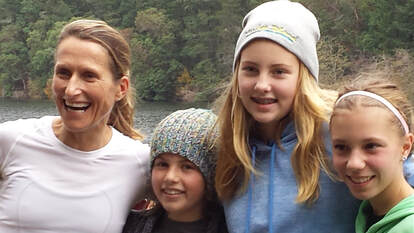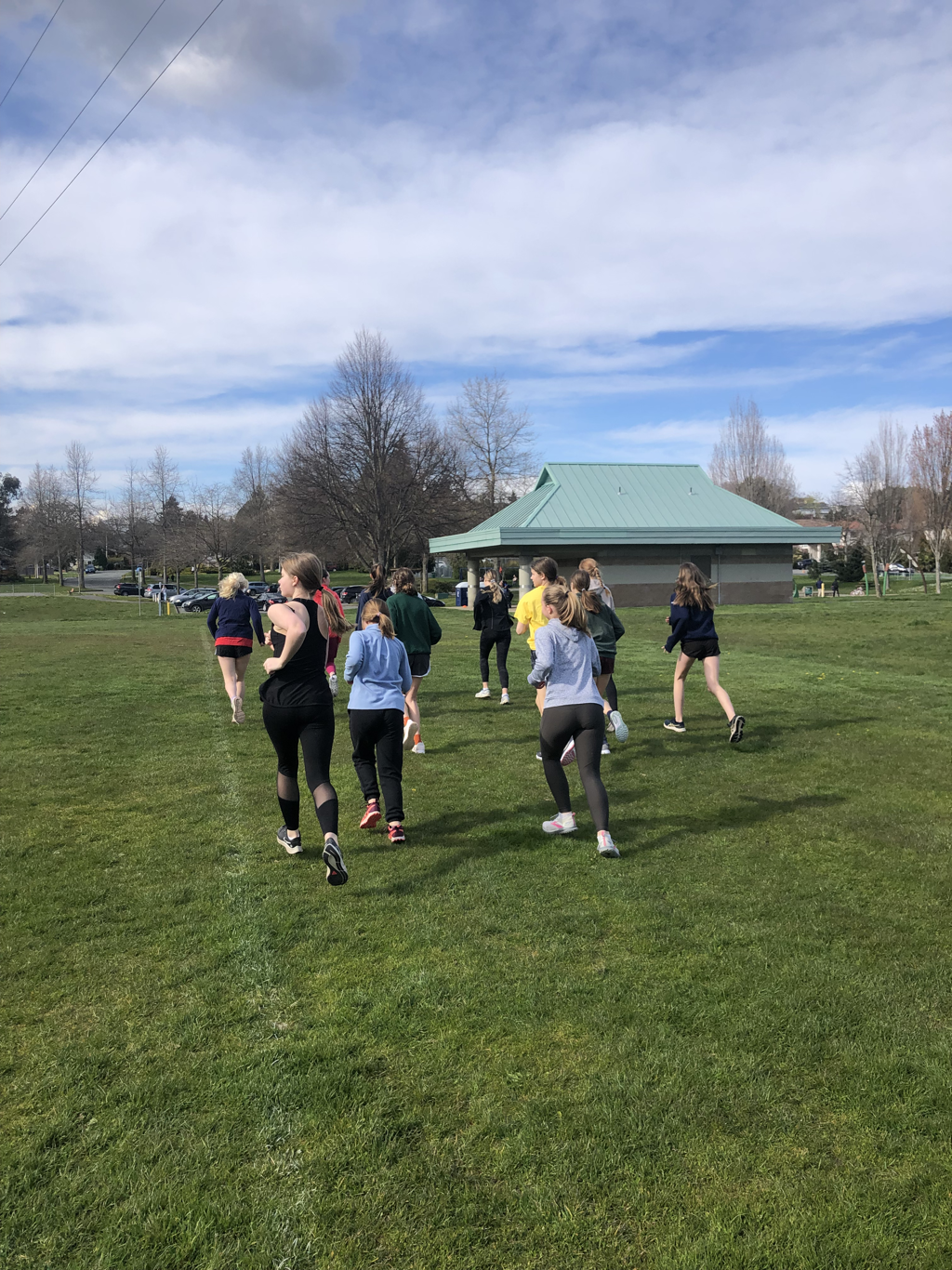|
While I don’t actually know exactly what makes YOU happy, I have been coaching long enough to have learned a few things about happiness, satisfaction and success in sport. Several decades in and the positive psychology movement has shown us that focussing on happiness as the end goal is probably the wrong question. Happiness comes and goes and as Mark Manson so cleverly states, …’instead, focus on meaning—finding meaningful activities and building meaningful relationships. If you nail those two, happiness takes care of itself’. From my own experience in sport, things our culture likes to promote as happiness-inducing, like nailing large sponsorship contracts, prize money and winning the Olympics, isn’t the magic formula to happiness in running. The other thing you see promoted as the key to lasting happiness is the perfect thin, lean and sculpted body you will get if only you try hard enough. And of course, none of us can ever try hard enough, but the diet and supplement industry is making gazillions from our efforts. In fact, I was giving a talk once, back when I could give in-person talks, reflecting on mistakes I had made in sport, mistakes that caused me to lose. I was remembering a time when I pretty much ruined my World Student Games 10 000m because I went and ran a hard 10 miles with my idol, the current Canadian 10 000m champion - 2 days prior to the event. As I told the story, with this huge smile, I suddenly paused - because the memory of that run, which took place through 10 miles of gorgeous British countryside - was such a happy memory, and whatever failure I had processed was now a positive thing. It was moments like these that created connection, joy and meaning in my life. Now I am retired, it is clear as day how much gratitude I have for the whole career - the ups and the downs. I have been observing athletes young and old learn sport skills, and find sport success for over three decades and during that time I have been able to see how meaning and connection are so related to happiness and enjoyment. While we are all motivated by different things in life, I have found some fairly common themes of why people stick with training, stay in sport and what makes them feel satisfied. It’s all about the meaning we make, and I call this intrinsic joy. This being the beginning of a new year, but a year without precedent, I guess the logical place to begin is with anything you think you should be doing (like New Year’s Resolutions that are shame based). Throw those shoulds away, is my advice. Should is so loaded with unmet expectations and pressure to be better or different than you are now, my recommendation is to begin with simply where you are right now. Take stock of what you have at the moment and start building a foundation of emotional strength that will keep you wanting to train, and take you through this year. Look at your training during the pandemic, especially, as a meaningful way to stay healthy, to support your mental health and as a tool for building your emotional fortitude and your sense of confidence in your ability to thrive - your resilience. Whatever your training or chosen movement is - running, walking, strength training, yoga, triathlon - one of the most helpful skills you can build is the practice of positive thinking every time you train. If you want to ensure that you will stick with your training, as motivation and energy ebbs and flows, and as life (and the pandemic) tries it’s hardest to get in the way, you want to strengthen your practice by associating your fitness with meaning. Then, happiness takes care of itself. As the season of uncertainty continues to progress you want to have a solid foundation of good habits. Things that keep you on the course, generally going in the right direction and not getting lost in the trees over and over again. Taking on this challenge gives you the opportunity to become a better emotional athlete. Before I outline a few skills of positive practice, let’s take a brief look at happiness and clear up some myths that are over exposed in popular culture. In the field of positive psychology, positive practice is not about being blissfully happy or on cloud nine about life all the time. This isn’t realistic and it’s also exhausting. I’m talking about the baseline of happiness, wherever that is for you, that takes into account that messy feelings happen and some days sort of suck. Positive practice is the expectation that things can and will go well and you have the power to make them so. So you are content about your path, not putting ‘happiness’ on hold until you have a positive outcome. Positive practice is about making a decision: you show up ready and happy to train. You don’t need a great training day to ensure your happiness. You also acknowledge that some days are harder than others, but the general feeling is of an upward trend or at least a steady one. I drew a picture once that illustrated this. (See below) Please note that I understand ‘happiness’ is just a word. It is a word I use to describe a calm emotional state, akin to peace, contentment and acceptance. It is not the sort of overzealous manic state that is overcompensating for a lack of confidence, self worth or inner peace. Positive is also just a word. A Positive (noun) is a constructive quality. Positive as an adjective refers to the presence of something (rather than the absence). Nor do I have this all figured out – inner peace and training and how they contribute to a meaningful life are works in progress for each person. How does this play out in your training? Show up Happy Happy to be there, grateful for the opportunity to move, happy for anything that you love about sport. And by happy, I mean authentically positive. Bring the presence of something that adds, do not leave it out. Be prepared. Put some thought into how you will be ready, how you will succeed. Be present and know that showing up and being ready is often enough to create a positive emotional state. Here are 3 of my favourite doable, positive practices: 1. Plan your rest, recovery and nutrition around all sessions, especially key sessions in the week. This is positive practice. 2. Visualize beforehand your optimal mental state: calm, energized, happy, relaxed. Meditate. This is positive practice. 3. Be mindful of your whole journey through fitness and sport and know that this right now, this road we are all on, is the reward. It's OK right now. Don’t wait to be happy. “How does this positive practice play out for those days when I just can’t motivate myself to train, especially during the pandemic when I don’t have my run group, or my friends to meet”. One of the best ways to prepare for the inevitable ups and downs is to practice positive skills consistently during training and also, not to expect perfection, or your version of perfection, for every session. Practicing good habits on the days when things are going well and feel smooth creates an opportunity to bring this forth on the not so great days. As a young athlete in my early 20’s, I wanted to ‘shoot the lights out’ with every session. I approached every training session like it was the world championships, or a test of my worth as an athlete. There was a roller coaster of emotion attached to this style of training. It took a lot of energy to get ‘up’ for all the sessions, and an elated feeling every time I smashed a PB for a loop in a training. There was also frequent crushing disappointment and despair when I wasn’t having a good day, when my body simply would not perform. I used to have stress dreams where I was trying my hardest to run around the track, but it was like I was running through molasses and nothing in my power could make my legs turn over faster. Over time, lots of time, I had to evolve into a more mature athlete, and my focus became more about how I was executing the session, what skills I was practicing, and allowing for imperfection. This made me a friendlier athlete to both myself and my team mates, which made for more connection and meaning, and the happiness (intrinsic joy) looked after itself. Despite hundreds of sub par (on paper) training sessions, I continued to enjoy running, and still do to this day. |
joyWriting about the art of moving well and the lived experience of a life in sport. Archives
March 2023
Categories
All
|


 RSS Feed
RSS Feed